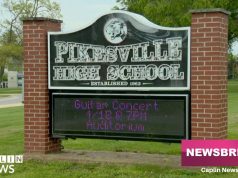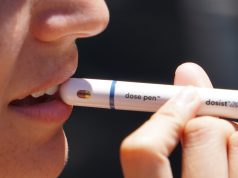Protestors gathered outside Miami City Hall on Sept. 13 holding signs that read “Housing is a Human Right” and “Save Virginia Key.”
They wanted to bring attention to city commissioners regarding the city’s plan to use Virginia Key as a proposed homeless community. The transition zone plane would build 50-100 tiny homes on the island for a portion of the homeless population in Miami.
Virginia Key is one of Miami’s historical beach parks that opened on Aug. 1, 1945, exclusively for the black community during segregation.
The island consists of grassy areas, trails to hike, and the beachfront. It has become a sanctuary to visitors for years, being a place where families come to celebrate birthdays and take advantage of a more private beach access.
Virginia Key is just one of many outdoor places that offer activities for everyone in South Florida. It is one of two parks in Miami that are a part of the United States National Register of Historic Places, being added in 2002.
Now, there is a possibility that tiny homes will inhabit the beach area of the island due to the city’s plan.
The city’s plan would require residents to share the space with new infrastructure and the homeless community.
According to the Point in Time (PIT) report from HUD Exchange, there were 9,193 sheltered homeless people in Florida on a specific night in January 2021. The PIT does not account for unsheltered people or shelters that are not part of the Continuum of Care Program.
Nationally there were 262,679 homeless people on the report, Florida makes 3.5% of the total national count.
Florida also accounts for 13.10% of their population being below poverty level, according to the American Community Survey done by the US Census in 2020. Those who make $13,000 or lower annually fall under this category.
There are currently 10 homeless shelters in the city of Miami, prompting protestors against the placement of homeless on the island, stating the current homeless initiatives need more resources.
One protestor Ivory Johnson Parker, who currently lives in a homeless shelter, believes that the city of Miami is not doing enough to help get homeless housing or jobs, according to Islander News.
In lieu of this there are many homeless initiative programs in Miami, such as the Miami Rescue Mission, whose goal is to serve the city’s homeless by providing meals, shelters, and employment.
Protests against the city’s plan to house homeless on Virginia Key have started an online petition with over 17,000 signatures. The petition pleads to preserve Virginia Key Park and help the homeless transition into a more resourceful area.
“To put things bluntly, the city is effectively banishing homeless people away from mainland Miami,” petitioners wrote in the website. “Our homeless population deserves better than this. Advocates working with the homeless community are best positioned to provide effective services. Let’s fund these groups to continue their good works.”
They also mention lack of infrastructure, poor living conditions due to insects, and the fear of opening the door to developments on Virginia Key that will eliminate natural habitats.
As the petition gains more signatures, the city commission has put the plan on hold with no prediction as to when it will be discussed again. Residents are still fearful of the subject being approved without their knowledge.




































